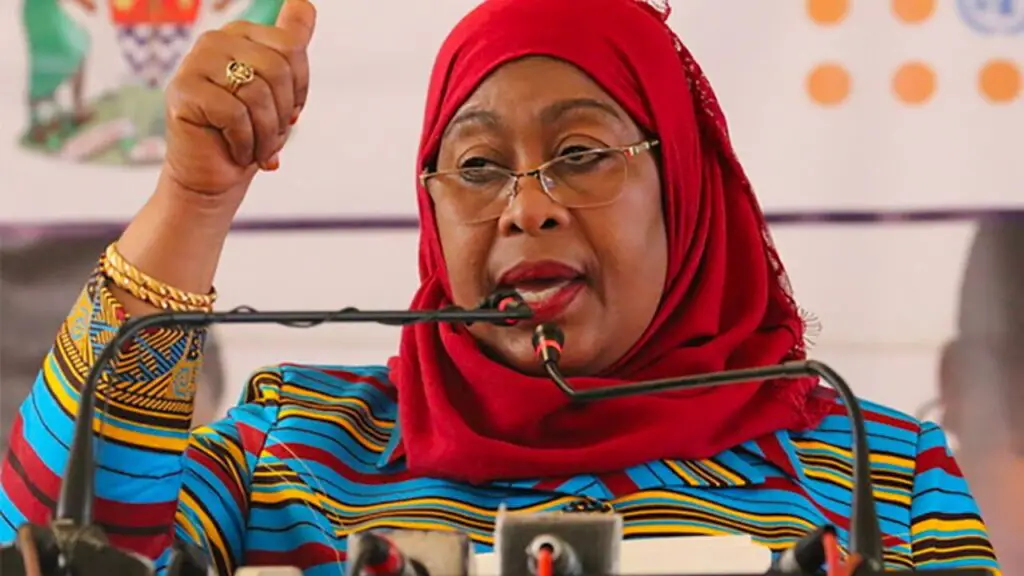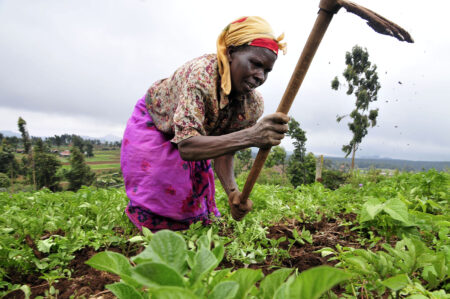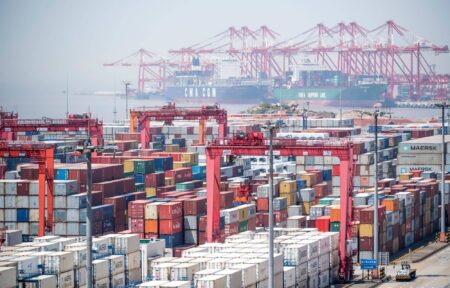- President Samia Suluhu Hassan’s pro-investment approach has boosted Tanzania’s investment climate.
- The newly launched Tanzania Electronic Investment Window stands to boost investors’ confidence.
- In the financial year 2022/2023, 369 projects were registered, a 26.1 per cent increase.
Court attention at all costs seems to be the new language Tanzania uses in its state visits, international conferences, meetings and investment agreements. Tanzania’s economy is now hinged on its performance in economic diplomacy and international business dealings.
Just like food, water and shelter, we (mere mortals) crave attention in all dimensions—virtually, personally and spiritually. The latter is not foreign to our governments. Hence, Tanzania is exploiting a soft spot within the global attention economy.
Whether through a reverting tourism documentary (Royal Tour) featuring the nation’s President Samia Suluhu, alongside a renowned Emmy-Award winner investigative journalist Peter Greenberg, or attracting global oil and gas giants to invest in Liquified Natural Gas (LNG) projects, Tanzania is on the rise to market itself higher.
There is more to the story than just “courting attention.” Numbers from the Tanzania Investment Center (TIC) point towards a fruitful pathway to economic liberation. It marks a new dawn towards an industrialized Tanzania.
Read also: Tanzania upbeat to become Africa’s top tourism destination
How Samia’s economic approach re-attracted investment
President Samia’s administration came into office at times when Tanzania had experienced sprained international relations, especially with the Western bloc. The situation had resulted in stalling of crucial investment opportunities.
Unlike her predecessor, President Samia’s pro-business approach has yielded positive economic results. This has paved the way for a prosperous investment journey for Tanzania. President Samia’s administration spent the first year and ten months dealing with various drawbacks that hurt the nation’s ability to market its investment potential to the world.
Tanzania’s government has scrapped unfriendly taxation structures, complexities in issuing work permits to foreigners, and trade setbacks. Consequently, Tanzania’s pro-investment approach caught international economic analysts’ attention, including global credit rating, research and data, and Moody’s.
“The outlook change to positive reflects Moody’s view that political risks have lessened under the government’s new approach to promoting economic development and engagement with the international community,” Moody’s said in its latest change on Tanzania’s rating, published in October 2022.
According to TIC figures, investment tripled from July 2022 to November 2022. Data showed that the industrial, transportation and tourism sectors dominated the investment projects. The sectors hit $3.16 billion between July and November 2022.
TIC noted that the centre registered at least 132 projects worth $3.16 billion in the five months under review, compared with 108 projects worth $881 million recorded during a similar period in 2021. The manufacturing sector accounts for At least 51 per cent of the projects. The TIC backed results to build investor confidence towards Tanzania’s policies and environment.
The impact of economic diplomacy and favourable investment policies
According to John Mnali, Director of Investment Promotion (by then acting executive director), the number of registered projects increased by 22.2 per cent, which indicated the impact of economic diplomacy and favourable investment policies that the government has promoted.
Minister for Industry and Trade Dr Ashatu Kijaji, went on record on April 2022, saying, “President Hassan has managed to garner praise and trust from investors who have shown confidence and willingness to invest in the country. Undoubtedly, the President has managed to effectively deal with the setbacks that investors encounter in their businesses”.
Tanzania Investment Electronic Window
In the same context, Prime Minister Kassim Majaliwa unveiled the Tanzania Investment Electronic Window in September 2023. The state-of-the-art system embodies the integration of various systems of government institutions concerned with issuing permits and licenses to investors. Further, the system will link with the National Identity Agency (NIDA) and the Ministry of Land to serve foreign investors’ land interests.
According to Mnali, the system is a game changer for Tanzania. It makes it possible to execute investment issues precisely and seamlessly via a robust design.
“For this phase, the investor will be entering one system when he starts the registration of the company; he will continue to apply for various permits through the system and the previous information that the investor will have provided, such as his name of the company, the owners of the company, that information will be available to all government institutions without having to provide that information every time,” Mnali said.
As a cherry on top, the TIC unveiled a unique campaign to draw in local and foreign investors. The campaign offers information regarding investment opportunities available in the nation. According to a statement by TIC, they have targeted around $10 billion in annual investments.
Read also: Tanzanias mining renaissance: President Samia invites foreign miners
President Samia Touring the World
Unlike the former administration, which focused on instilling stringent internal and pan-African economic strategies, the current administration is banking on state visits.
President Samia’s latest visit to India resulted in a significant breakthrough for Tanzania’s pharmaceutical industry. During her visit, she signed an agreement to establish a pharmaceutical hub in Tanzania. The hub will enable the nation to become the leading producer and exporter of pharmaceuticals in the East, Central and Southern Africa region.
According to the press brief on October 12, the pharmaceutical agreement is one of fifteen Memorandums of Understanding (MOUs) that were signed during President Samia’s visit, covering a wide range of areas of cooperation, including trade, investment, defence, security, and healthcare.
In the agriculture sector, accounting for around 26 per cent of the nation’s GDP and employing 65 per cent of Tanzanians, a handsome deal was pitched. It included $1 billion in fund requirements for a major irrigation project to the Exim Bank of India to distribute water from Lake Victoria to central regions.
President Samia’s economic diplomacy extended further to North America. In her May 2022 trip to the US, matters of economic growth, especially investment opportunities in the area of tourism, were discussed with US Vice President Kamala Harris.
According to Kamala, Samia’s trip generated almost $1 billion in investments from various companies in the US. The latter reflects her administration’s commitment to creating ease of business, collaborating with the private sector, and building better conditions and favourable environments.
Over the past years, Tanzania has demonstrated its ability to manifest its ambitions through practical solutions. These solutions not only yield better economic results but also put Tanzania on the global economic map.











